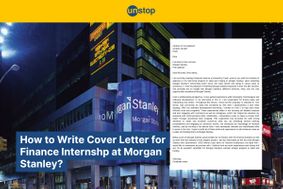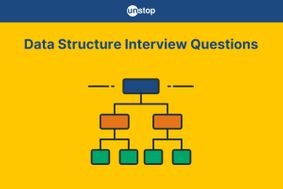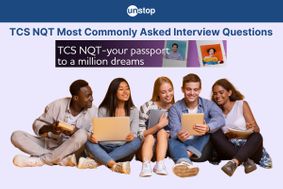- TCS NQT Recruitment Process: Overview
- TCS NQT Hiring 2025: Eligibility Criteria
- TCS NQT Hiring 2025: Application Process & Link
- Important Dates: TCS NQT Hiring 2025
- TCS NQT Exam Structure: Detailed Breakdown
- TCS NQT Hiring Categories
- TCS NQT 2025: Preparation Resources
- Conclusion
- Frequently Asked Questions (FAQs)
- Understanding TCS NQT Previous Year's Papers
- TCS NQT Latest Exam Pattern
- Download PDFs of TCS NQT Previous Year Sample Papers
- Related TCS NQT Resources
- Top 5 MCQs with Answers for TCS NQT 2025
- Conclusion
- Frequently Asked Questions (FAQs)
- Overview of TCS Ninja Previous Year Papers
- Marking Scheme and Level of Exam
- Top 5 sample MCQs for TCS ninja Exam
- Benefits of Practicing Previous Year Papers
- Preparation Tips for TCS Ninja Exam
- Conclusion
- Frequently Asked Questions (FAQs)
- Key Features of TCS NQT Aptitude Section
- Sample Question Patterns
- Top 5 MCQs for TCS NQT Aptitude Test
- Effective Preparation Tips
- Conclusion
- Frequently Asked Questions (FAQs)
- Key Topics in TCS NQT Verbal Ability Section
- Top 5 MCQs with Answers for TCS NQT Verbal Ability
- In-depth Tips & Strategies for Each Verbal Ability Section
- Conclusion
- Frequently Asked Questions (FAQs)
- Understanding TCS NQT Reasoning Ability Section
- Exam Structure: TCS NQT Reasoning Section
- Sample Reasoning Question Patterns
- Top 5 MCQs with Answers for TCS NQT Reasoning
- Effective Preparation Strategies
- Conclusion
- Frequently Asked Questions (FAQs)
- Key Topics for TCS NQT Coding Section
- TCS NQT Coding Test Pattern
- Top 5 TCS NQT Coding Questions with Answers
- Tips to Ace TCS NQT Coding Section
- Conclusion
- Frequently Asked Questions (FAQs)
- TCS NQT: Personal Interview
- TCS NQT Interview: Technical Round Questions
- TCS NQT Interview: Management Round Questions
- TCS NQT Interview: HR Interview Round Questions
- TCS Managerial Round Interview Questions
- TCS Managerial Round Interview Questions: Tips
- TCS Ninja Detailed Recruitment Process
- Exam Pattern of TCS NQT
- TCS Ninja Technical Interview
- TCS Ninja HR Interview
- TCS Ninja Offer Rollout
- Tips for TCS Ninja Recruitment
- Conclusion
- Frequently Asked Questions (FAQs)
- Overview of TCS Ninja Aptitude Test
- TCS Ninja Aptitude Exam Pattern
- Selected Ninja Aptitude Questions & Solutions (MCQs)
- Conclusion
- Frequently Asked Questions
- Topics for TCS Ninja Coding Questions
- Questions Format for Ninja Coding
- Top 5 Sample Questions with Solution
- Preparation Tips
- Conclusion
- Frequently Asked Questions (FAQs)
- Overview of TCS Ninja Interview Questions
- Best TCS Ninja Interview Questions & Answers
- Conclusion
- Frequently Asked Questions (FAQs)
- Overview of TCS Digital Recruitment Process
- Updated Exam Pattern & Structure
- Advanced Quantitative Section Details
- Reasoning Section
- Preparation Tips & Strategies
- Conclusion
- Frequently Asked Questions (FAQs)
- About TCS
- TCS Digital Eligibility Criteria
- TCS Digital Syllabus
- TCS Digital Exam Pattern
- TCS Digital Salary
- TCS Digital Interview Process
- Digital Exam for TCS Employees
- TCS Digital Preparation Tips
- Conclusion
- Frequently Asked Questions (FAQs)
- TCS Digital Aptitude Exam Format
- TCS Digital Aptitude Syllabus
- Advanced Aptitude Questions for TCS Digital
- Top 5 TCS Digital Aptitude Sample MCQs
- Preparation Tips
- Conclusion
- Frequently Asked Questions (FAQs)
- Digital Coding Questions: Topics Covered
- TCS Digital Previous Year Coding Questions
- Top 5 Digital Coding Questions with Solution
- Digital Advanced Coding Questions
- TCS Digital Coding Round Questions
- Digital Coding Questions for Freshers
- How to Prepare for TCS Digital Coding Exam?
- Conclusion
- Frequently Asked Questions (FAQs)
- TCS Digital Interview Process for Freshers
- TCS Digital Interview Questions and Answers
- Top 5 Sample MCQs for TCS Digital Interview
- Tips for Freshers Preparing for TCS Digital
- Conclusion
- Frequently Asked Questions (FAQs)
TCS Managerial Round Interview Questions (And Sample Answers)

Tata Consultancy Services (TCS) is one of the most well-known multinational IT firms in India, known for its diverse workforce and global presence. As the name indicates, TCS is also a subsidiary of the illustrious Tata Group. Naturally, most individuals would wish to work with TCS, especially in a managerial role. However, taking on leadership roles within a company like TCS is not a piece of cake.
While applying for a role within TCS, it's important that you're technically proficient and have excellent communication skills. Additionally, when answering managerial questions in the interview, it's crucial that you showcase your professional experience accurately and display in-depth knowledge about your past work.
The interview process at TCS is usually divided into two rounds, a technical interview round and a managerial interview round. Both interview rounds include a mix of basic questions that test your communication skills and general aptitude and technical questions that test your professional skills.
In the managerial round, employers are also testing how an individual performs under pressure. Simply put, it's a round aimed at testing your confidence level, analytical skills, and stress-handling capabilities. As part of your interview preparation, brush up on your knowledge about the company, prepare answers in advance to common questions about your previous role, and have clarity over salary expectations.
Here's a list of TCS managerial round interview questions that you may encounter:
TCS Managerial Round Interview Questions
1. Within a team, what role are you most comfortable with?
The purpose of such interview questions is to understand how well you'll fit within a team and if you feel you have the potential to lead. Ideally, answer such a question with examples of instances where you led the team or displayed a collaborative approach.
A: I am a team player and work well with others, whether it's sharing work or following instructions and picking up tasks delegated to me. In recent years I did start taking on more leadership roles and even managed a diverse group of people. What I've learned over the years is not to get tied to a role but rather to understand the project requirements and adjust accordingly.
2. How do you fix mistakes?
Everyone makes mistakes, but it's essential for recruiters to understand if you take ownership of your mistakes, the efforts you make to fix the problem, and how you respond to challenges. It's a test of your problem-solving skills, so ensure you give concrete examples of how you resolved a mistake. Try not to hide your mistakes or shift blame when answering. Remember that brilliant answers are always rooted in honesty.
A. I ensure that whenever I encounter a mistake, I communicate it to concerned parties so that the ripple effect from the mistake, if any, can be minimized or controlled. I also create plans to rectify the situation. For example, in one of the very first codes that I wrote as a software developer, I discovered the code could lead to some bugs down the line. I immediately communicated the issue to my reporting manager and worked to resolve it as soon as possible.
3. If you had to pick one workplace achievement to talk about, what would it be and why?
With such questions, recruiters are trying to understand what success means to you. When answering, share previous experiences that are either not listed on the resume, or help expand on a particularly important point/skill in your resume. The idea is to put your best foot forward, so talk about an achievement that not only highlights your basic skills but also focuses on areas you're especially proficient at.
A. In my previous stint, I realized our content writers were stumbling on technical questions because they spent a lot of time on research and needed additional fact-checking. To help them, I drafted common technical questions with answers, along with a list of resources one could use for research. I was able to help the team reduce the production time by 50%.
4. How do you resolve conflict within a team?
Hiring managers want to understand your approach to conflict resolution, and if that involves seeking external help or involving management. When answering, provide insight into how you have solved conflicts in your previous experiences.
A. I believe it's essential to resolve conflicts in a timely manner, and ideally without involving upper management or individuals outside the team. My go-to approach is to schedule meetings where relevant individuals can openly communicate what's affecting them. This allows everyone to put forward their point of view and come to a common solution.
5. What's your response when you're unable to meet a deadline or submit quality work in the given timeframe?
Such TCS managerial round interview questions are another way for recruiters to see if you take accountability for your work and how you balance deadlines with quality. Your approach to deadlines and quality can be critical in determining if you're ready to take on a managerial role. When answering, try to use a specific example, share the approach you took, and if possible, share results that justify your approach.
A. Compromising on quality is never ideal. In such a situation, I'd request additional time rather than submit sub-standard work that raises a question about our competency and may eventually, have to be redone. In my past role, we often had to prepare project progress presentations under tight deadlines. This task required coordination with other team members, gathering data, and using visual aids like charts and graphs. I set a daily to-do task list to prioritize my work and created a timeline where I could align others' deliverables with our deadline. I also blocked time daily to work on parts of the presentation, so that the end result was not rushed. At the same time, I don't hesitate in asking for help or communicating challenges, if any, to the team lead well in time so that the end result is favourable.
6. Are you open to or interested in changing domains?
With such questions, interviewers want to understand if you're changing domains because of a change in interest or due to poor performance/difficult working relationships. It's the perfect opportunity to assure recruiters that you're looking for a new challenge and do not lack the requisite technical skills or capabilities. When answering, focus on what attracts you about the new domain and organization, but do not speak negatively of your previous experiences with a company. Also, try to find ways to connect both domains or link your past experience to your future role.
A. Yes, I'm open to changing domains. I loved tackling the challenges and taking on the opportunities that came with my current role but I am looking to learn new things. I also want to use my skills and experience in a different capacity than I have in the past. I feel that I am at a place where I would benefit from expanding my horizon and testing new waters.
7. What quality do you have that differentiates you from others?
This is a commonly asked managerial question. Here, candidates should be prepared to communicate why they are the right fit for the position and the company. Answer this question by highlighting specific accomplishments and characteristics that make you an asset to the company.
A. My prior experience of working in different start-ups provided me with opportunities to take on tasks I might not have taken at a larger company. It also made me more open to approaching others for help and taking on initiative rather than waiting for help. I believe my previous experiences set me apart because I have a more holistic view of our industry, and view change or new situations with confidence rather than apprehension.
8. Are you aware of TCS' recent accomplishments? If yes, please share one.
Interview questions like these are meant to assess how well a candidate knows the company. It's crucial that you study the organization and have a fair idea of its achievements. A well-research answer will show how prepared you are for the role.
A. Per the Brand Finance 2022 Rankings, Tata Consultancy Services (TCS) brand value increased by $1.8 billion over the past year, moving into the top two IT services brands globally. The top three reasons for this rise appear to be robust financials, strong customer equity, and strategic investments.
9. If your team resists your idea, what will you do?
Not everyone at the workplace may be equally enthusiastic about a new idea. Interviewers want to understand how you handle resistance when you're in a leadership role. One may think these are tricky questions but this is just another way of seeing how you handle difficult situations. When responding, share how you communicate new ideas with the team and handle their apprehensions.
A. New ideas can sometimes feel daunting for the team, especially if it involves a significant change. I rely on evidence-backed examples to communicate why the idea would be beneficial and potentially avoid challenges. I also provide a testing period where the team can test a new idea and share any issues they're facing. If the team continues to resist, I ask for alternate solutions or provide them with additional resources (mentoring sessions or workshops, etc.).
10. What motivates you at work?
The hiring manager may ask this question to understand what keeps you engaged in your role and organization. Your answer will enable them to understand if your core values align with the company culture. Ideally, while responding, share past experiences where your motivation helped you achieve a goal.
A. I am driven by the idea of helping others, be it at work or in life. During one of my previous engagements, I was able to help new team members improve their efficiency by sharing examples and tips from my own experiences. Ultimately, they were able to reduce the turnaround time and ended up receiving praise for the task. Knowing I helped ease their workplace hassles and helped them accomplish success left me fulfilled.
11. Who do you believe are the top competitors of TCS?
Interview questions like these are meant to test your understanding of the industry and evaluate if you're in touch with the current market. A strong answer is one that shows your research.
A. From what I understand, Tech Mahindra, Infosys, HCL Tech, and Wipro are some of the major competitors for TCS.
12. What do you do to keep up with industry trends and technological developments?
Technology has become indispensable in every business operation, be it manufacturing, client servicing, or of course, coding and product development. It's important that you are in tune with the latest developments in your industry, as this showcases your passion and level of preparedness for the role. As part of the interview preparation, you can read about the latest developments in the industry, and keep a note of any developments that impact your role.
A. I enjoy learning about the latest developments in the industry and regularly subscribe to online publications. I also try to find different perspectives on any new development to better understand how its impact. I also actively seek out conferences and seminars by industry experts.
13. How will you react to last-minute changes to technical assignments you spend weeks completing?
In a managerial role, you may often have to deal with last-minute changes and unexpected situations. With such interview questions, recruiters want to understand how you handle pressure and take charge.
A. Last-minute changes are a reality in the world, even though no one looks forward to them! If such changes come my way, I first and foremost try to understand the reasoning behind them. Secondly, I understand the revised timelines and the level of rework required to best optimize my time and deliverables.
14. Do you have any additional questions for me?
This is an important management interview question and one that applicants must take advantage of. It's also a way to show that you're engaged with the interview process.
Now's the time to raise your concerns, if any - be it regarding the job expectation or a query related to the job description. Some basic questions you can ask are about the progression path in the company, the organization's view on work-life balance, what the day-to-day responsibilities look like, etc.
A. Yes, could you please shed some light on how the day-to-day responsibilities of a leadership role? Also, I would appreciate it if you could elaborate a little more on the kind of professional experience you look for when hiring for managerial roles.
15. Can you describe an environment or scenario where you would not thrive instantly?
Candidates think of this as a tricky question and often resort to overly positive answers. However, honesty is always the way to go. Recruiters are trying to understand the working conditions and management style you best respond to, while also seeing if you're a good fit for the organization. Be honest in your response, but do not list unrealistic responses.
A. I thrive in a culture where people adopt a collaborative approach to problems. While I am open to criticism and always look for ways to improve myself, I do find it hard to stay neutral in the face of extremely harsh feedback. I also enjoy learning on the job, but appreciate help, especially in the initial days.

TCS Managerial Round Interview Questions: Tips
The aforementioned are some TCS managerial round interview questions to get started. Here are also a few interview preparation tips that you should keep in mind:
- It's always a good practice to study the job description and understand the specific technical skills required for the role. Study the technical subjects that have a direct impact on the role.
- Always study the organization and its recent developments. TCS managerial round interview questions are likely to test your knowledge of the company.
- Be clear about the job expectations beyond the technical skills required i.e., if the role requires night shifts, constant travel, etc. If the job description does not specify this information, clarify this during the HR or managerial round interview.
- Prepare a few answers in advance, especially about your previous role. Ideally, also read multiple examples of questions (like the aforementioned managerial interview questions).
- Go through mock interviews to amp up your communication skills.
Recruiters are likely to intersperse tricky interview questions with commonplace management interview questions. At times, recruiters may also ask a few technical questions to test how familiar you are with the subject. This list of interview questions is a good place to start your interview preparation. Ultimately though, the idea of a management interview is to test both, your basic skills and technical skills.
You may also be interested in the following:
- Examples For How To Answer "What Interests You About This Job?"
- Top 35 Interview Questions For Freshers With Answers
- Top 101 Java Interview Questions And Answers That IT Companies Ask!
- Top 50 data structure interview questions and answers that tech giants ask!
- Do you have 'Googling' as a skill on your CV? If not, you are missing an interview call!
I’m a reader first and a writer second, constantly diving into the world of content. If I’m not writing or reading, I like watching movies and dreaming of a life by the beach.
Login to continue reading
And access exclusive content, personalized recommendations, and career-boosting opportunities.
Subscribe
to our newsletter
Blogs you need to hog!

How To Write Finance Cover Letter For Morgan Stanley (+Free Sample!)

55+ Data Structure Interview Questions For 2026 (Detailed Answers)

How To Negotiate Salary With HR: Tips And Insider Advice











Comments
Add comment